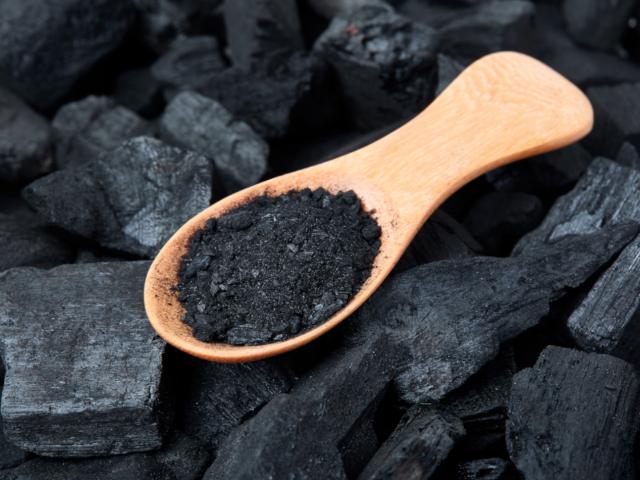-
The persistent theory that depression is caused by an imbalance of serotonin or any other brain chemical has been questioned over the past two decades.
-
A combination of genetic and environmental factors cause depression and it’s misleading to suggest that any specific foods or substances could have an effect on the disease.
-
There is little evidence that Epsom salts can be used to treat burns – rather run cool water over the wound – and it’s incorrect to suggest that castor oil has any effect on cancerous tumours.
In a series of videos circulating on social media in June 2023, a woman promotes alternative health advice and natural remedies for a variety of conditions.
She’s Barbara O’Neill, an Australian naturopath who was banned for life from providing any health services in Australia in 2019. This was after an official investigation found that she gave health advice without any qualifications or membership of a recognised health organisation.
Despite the ban, videos of O’Neill lecturing and talking about her remedies are popular on social media, particularly in South Africa and Nigeria.
A video on Facebook, which has over 31,000 likes, claims that depression is caused by a chemical imbalance in the brain as a result of “highs” from certain foods and substances. And this video claims that applying a mixture of Epsom salts and water is “one of the best things to use for a burn”.
In footage viewed thousands of times on Facebook and TikTok, O’Neill suggests that a castor oil compress can “break up” lumps, bumps and adhesions associated with breast cancer.
We asked O’Neill for the evidence for her advice but had not heard back at the time of writing.
They might be popular, but do these claims have any scientific basis?
Depression, or major depressive disorder, is a mental illness that affects mood, sleep, appetite, and concentration levels. Depression is a leading cause of disability worldwide and, in severe cases, can be fatal. Treatment usually involves medication or psychotherapy, or a combination of the two.
Psychologists view mental illness on a spectrum, from healthy functioning at one end, to distress in the middle, to severe distress and illness on the other end. Classifying someone as having a mental illness such as major depressive disorder is placing them somewhere on that spectrum.
Depression probably not caused by ‘chemical imbalance’ in brain
In the 1960s, a popular theory suggested that depression was caused by a lack of a chemical messenger in the brain called serotonin. The pharmaceutical industry promoted this theory in the 1990s to market a new class of antidepressants that were believed to increase serotonin in some parts of the brain. These drugs are known as selective serotonin reuptake inhibitors, or SSRIs.
But research done in the decades since suggests that depression is caused by complex interactions between a wide range of factors.
Researchers now understand that the cause of depression is “much more complex” than having too little or too much of a brain chemical, Dr Gerard Sanacora told Africa Check. He is a professor of psychiatry at Yale University in the US and director of the Yale Depression Research Program.
Recent reviews of serotonin research have found “no convincing evidence” that depression is caused by low serotonin levels.
Antidepressants may be effective for reasons other than their effect on serotonin. As researchers from University College London explained in 2022, antidepressants may “numb” emotions in general, which could explain improvements in symptoms.
Another explanation is the placebo effect. This is where a treatment has some beneficial effect, not because of its ingredients, but because the person believes it is working.
Risk factors
Depression does involve chemicals in the brain but, according to Harvard Medical School in the US, “there are millions, even billions, of chemical reactions that make up the dynamic system that is responsible for your mood, perceptions, and how you experience life”. Researchers now believe that a combination of genetic and environmental factors lead to depressive symptoms.
Some things increase the risk of developing depression, such as having a family history of the condition, having a chronic or serious illness, or experiencing major changes or negative life events. Interactions between all of these can lead to depression. For example, someone who has a relative with depression may develop the condition after a stressful life event, such as the death of a loved one.
Food, substances and depression – an oversimplified relationship
As there are many different causes of depression, it is unlikely that any single cause will be responsible for someone developing the condition. But the video circulating on social media lists wheat, sugar, caffeine, drugs and alcohol as major causes. Another video also mentions lack of oxygen or sunlight.
Listing specific foods and substances oversimplifies the situation, Sanacora told Africa Check.
Asked whether any of these could cause depression, he said the data was “very weak”. This was especially true when it came to applying this logic to the average person.
Although poor diet or an inability to absorb certain nutrients could contribute to the processes that eventually lead to depression in some people, “currently there is no high quality evidence to convincingly demonstrate that any of the claims … are correct”, Sanacora said.
As well as oversimplifying the complexity of the condition, the claims rely on correlation rather than causation. Two things being related does not mean that one causes the other.
“For the large majority of people the relationship [between depression and specific foods or substances] is probably more correlational,” Sanacora said.
Take the example of alcohol and other drug use. There is a strong association between problematic substance use and depression, which means that they often occur at the same time. But that doesn’t mean one caused the other, even if one appeared first. Scientists think there are three main reasons for this association. According to the US National Institute of Mental Health (NIMH), there may be risk factors that are common to both developing depression and problematic substance use, such as genetic vulnerability, as both tend to run in families.
Second, people with depression may use substances such as alcohol or other drugs to cope with or attempt to reduce the symptoms of depression. These substances may help at first, but they can also make symptoms worse over time. The NIMH said problematic substance use could also “trigger changes in brain structure and function” that make someone more vulnerable to a mental illness, like depression. This means that any causal link between the two is still unclear.
Eliminating specific parts of the diet was not recommended without proper medical advice, Sanacora told Africa Check. “People should be extremely cautious about any suggestions of extreme changes in dietary intake or changes that have major impacts on quality of life."
Epsom salts are naturally occuring mineral salts made up of the compound magnesium sulphate. They have long been promoted as having many benefits, including reducing pain and stress. In the video, O’Neill describes applying a mixture of Epsom salts and water to a burn wound, either by leaving the burn in the solution or by covering it with a bandage soaked in the solution.
In an 1893 medical case report titled “Epsom Salts for the Pain in Burns”, a doctor described treating a patient with Epsom salts dissolved in water after giving the patient the powerful painkiller morphine. They claimed that the Epsom salt mixture “relieved the local pain of burns – it might be said instantly”.
In the more than a century since then, however, little research has been published on Epsom salts as a first aid treatment for burns. Research published in 2020 suggested that magnesium sulphate, given orally or injected, might be effective in general pain management by reducing sensitivity to different types of pain. But this was not for burns, and did not involve applying the compound in a mixture to the skin.
No evidence Epsom salts should be used as first aid
Africa Check spoke to Dr Neville Vlok, an emergency medicine specialist in South Africa, about first aid for burns.
He said there was some research suggesting that injected, medical-grade Epsom salts could have a beneficial effect on hydrofluoric acid burns. Hydrofluoric acid is made from water mixed with the compound hydrogen fluoride, a colourless substance used to make refrigerants and light bulbs. Studies in rats and rabbits have suggested that injecting hydrogen sulphate slows the progression of the severe chemical burns caused by hydrofluoric acid.
Outside of this specific and rare chemical burn, there is “no evidence to suggest that Epsom salts should be used as a first aid remedy” for burns caused by contact with heat, Vlok told Africa Check. It “remains an unscientific home remedy”.
Treating burns with water is cheaper and more accessible. Research has consistently shown that holding the burn under cool, running water for at least 20 minutes “remains the easiest, best studied, most accessible and currently most effective first aid treatment for burns”.
Castor oil comes from the bean of a large plant that is widely grown for industrial use. The plant contains the powerful poison ricin, which is fatal in small doses.
According to this 2017 journal article, castor oil was recommended as a treatment at least as far back as 200CE, when it was thought that breast cancer was caused by too much “black bile” in the body. It has been used as a traditional medicine for millennia.
Today, castor oil is a common ingredient in beauty products, and is used for dry skin or as a massage oil. Medically, castor oil is recognised by the European Medical Agency (EMA) and the US Food and Drug Administration as a stimulant laxative. Research also shows it may be effective in inducing labour.
However, a comprehensive assessment of the medical properties of castor oil by the EMA, carried out in 2016 and updated in 2023, found no evidence of any medical benefits beyond its use as a laxative.
If swallowed, castor oil can also cause a number of side effects, including dizziness, diarrhoea and abdominal cramps, nausea, and low blood pressure. As it can induce labour, it is not safe to take during pregnancy.
The kernel of truth in castor beans?
A mixture containing a form of castor oil is used in some chemotherapy treatments. Chemotherapy is the use of powerful chemicals to kill fast-growing cells in the body, most often used to target cancers. However, here it is added as an ingredient to make the drug soluble for use in injections, rather than working as an anti-cancer agent itself.
A 2007 safety report on castor derivatives from the American College of Toxicology described a 1992 study that evaluated the effects of a castor oil extract injected into mice with cancerous tumours. The study found that the extract suppressed tumours in some mice. But this was a small study done more than two decades ago, not in humans, not with castor oil, and not involving direct application to the skin. This means that it can’t tell us anything about any anti-cancer effects of castor oil.
Breast cancer experts agree. Dr Liana Roodt, a Cape Town-based surgeon specialising in breast cancer care, told Africa Check “there is absolutely no evidence to support castor oil as a treatment for breast cancer”.
Africa Check also contacted Reach for Recovery, a group that provides support and advice to people with breast cancer in South Africa.
“There are many challenges in sharing the correct facts and data on breast cancer,” Stephné Jacobs, the chair of the Reach for Recovery board, said.
Dr Ilse De Kock, also a board member and a medical doctor, told Africa Check that the organisation would not endorse untested products for the treatment of cancer, saying “these claims are not true and have not been proven”.







Add new comment